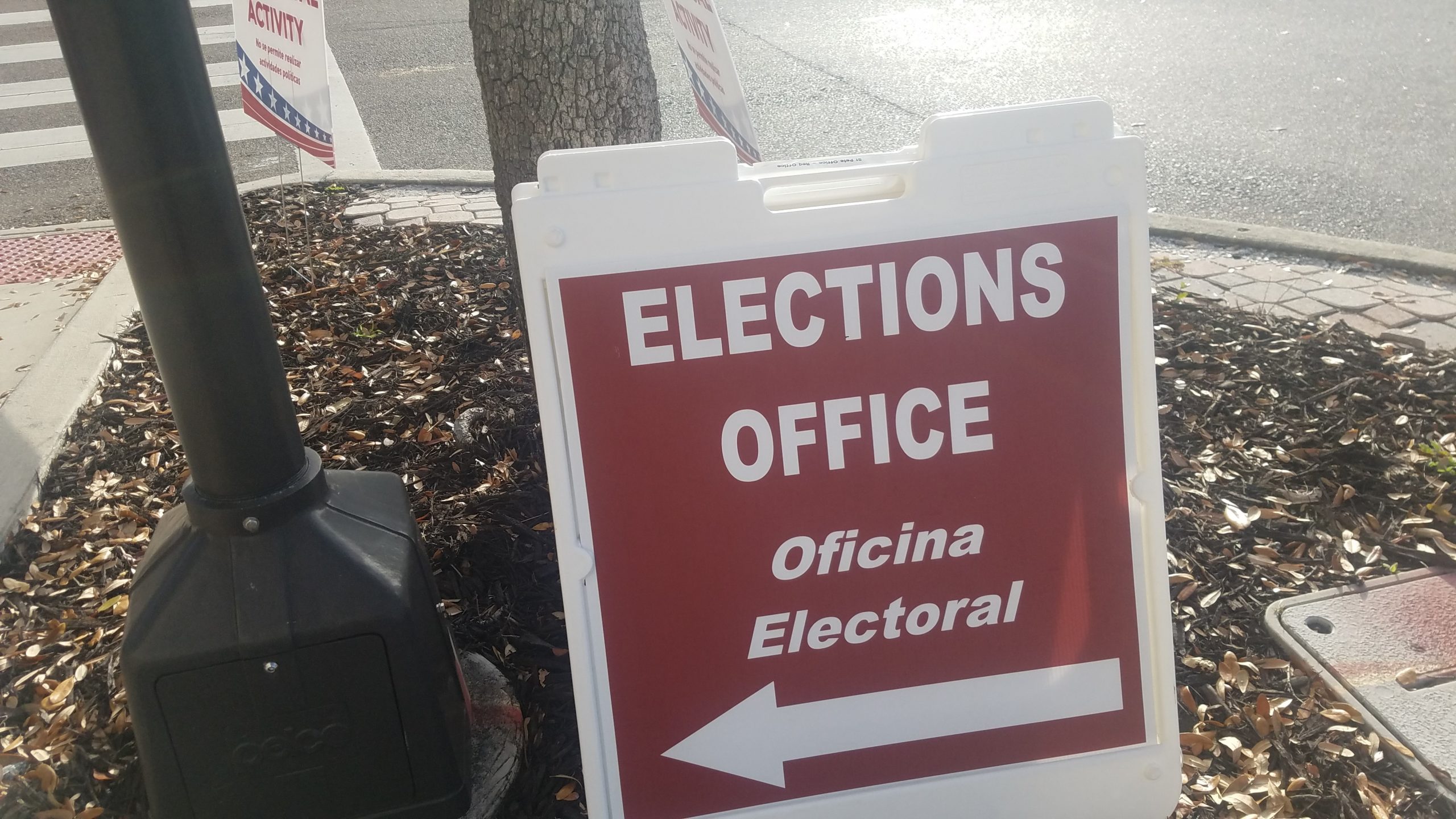
By Jim Saunders ©2023 The News Service of Florida
TALLAHASSEE — Arguing that state and local officials have created a “broken and arbitrary system,” plaintiffs are trying to fend off an attempt to end a lawsuit that challenges the way a 2018 constitutional amendment aimed at restoring felons’ voting rights has been carried out.
Attorneys for the Florida Rights Restoration Coalition and four individual plaintiffs last week filed a 61-page court document opposing a request by Gov. Ron DeSantis’ administration, county clerks of court and elections supervisors to dismiss the lawsuit.
The 2018 constitutional amendment, known as Amendment 4, was designed to restore voting rights for felons who have completed their sentences. But the plaintiffs allege that the way state and local officials have carried it out has violated the U.S. Constitution and the federal Voting Rights Act.
“Plaintiffs simply want defendants to abide by their federal constitutional and statutory responsibilities to assist them (plaintiffs) in determining their eligibility to vote in a uniform and non-arbitrary way, and to stop engaging in conduct that intimidates them and others for seeking to vote in the first place,” said the document filed last week in federal court in South Florida.
The case focuses heavily on part of a law that the Legislature passed in 2019 after the constitutional amendment was approved by voters. The law (SB 7066) requires felons to pay “legal financial obligations” — fees, fines and other court costs — associated with their convictions before they can be eligible to vote.
Attorneys for the plaintiffs contended in the document filed last week that state and local officials “cannot, or will not, tell people with prior felony convictions how much they must pay in legal financial obligations so that they may exercise the franchise” and have taken other steps, including arresting or threatening to arrest felons who have received voter-registration cards.
“(In) the five years since Amendment 4 was ratified, defendants have created and perpetuated a broken and arbitrary system, in which the actors charged with protecting plaintiffs’ federal rights disclaim responsibility, point fingers at other officials, and intimidate the very individuals Amendment 4 was intended to re-enfranchise,” the document said.
But in the motion to dismiss filed Oct. 30 and tweaked Nov. 3, attorneys for the state, clerks and elections supervisors said the plaintiffs were seeking an “unprecedented judicial takeover” of voter-registration procedures.
The attorneys also wrote that the “ultimate complaint is that it is sometimes difficult to determine whether a felon has completed the financial terms of a sentence.” But they said that doesn’t mean the process is unconstitutional.
“Florida’s voting restoration laws are of general application,” the motion said. “They permissively require voters — felons who are best positioned to know their sentences, perhaps in multiple cases and multiple jurisdictions — to comply with those laws through primarily their own efforts. They provide ‘more than adequate’ procedures to challenge ineligibility. Thus, as a matter of law, Florida’s SB 7066 procedures do not infringe upon plaintiffs’ constitutional rights.”
The lawsuit seeks a ruling that the way Amendment 4 has been carried out violates the Voting Rights Act, violates equal-protection rights and places an unconstitutional “undue burden on the right to vote.”
The lawsuit, for example, also seeks an order requiring the establishment of a statewide database “that allows individuals with prior felony convictions to determine if they have outstanding LFOs (legal financial obligations); the amount of any outstanding LFOs; the jurisdiction to which they owe any outstanding LFOs; and where payment may be made to satisfy any outstanding LFOs.”
But in the motion to dismiss the case, attorneys for the state and the county officials raised a series of arguments, including contending that plaintiffs do not have legal standing and pointing to sovereign immunity. The motion said sovereign immunity limits the authority of federal courts in deciding issues related to state laws.
In the response filed last week, however, lawyers for the plaintiffs disputed such arguments. For instance, in addressing sovereign immunity issues related to the state and elections supervisors, the lawyers wrote that the case “seeks to vindicate only federal constitutional and statutory rights, alleges only federal constitutional and statutory claims, and seeks only prospective injunctive relief against the defendants obligated to protect those federal rights.”
Leave a Reply










